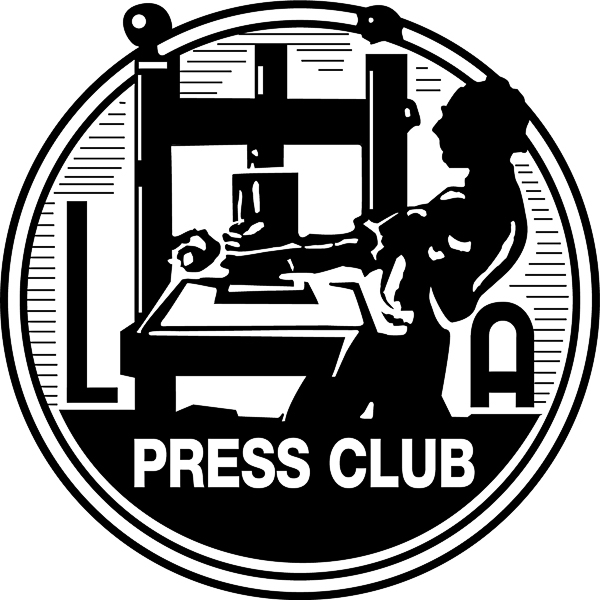Monday, February 16, 2004 6:05 PM
Judge not, lest ye be judged
– Matthew 7:1
By Michael Collins

This celebrated biblical adage is good advice. But what if you are being judged? Many of us have been critiqued in our journeys to garner prestigious Press Club awards, including yours truly. To flip Matthew’s proverb on its ear, it’s time to judge other press club’s submissions.
We don’t judge any journalism entries sent to us for the Southern California Journalism Awards because of potential conflicts of interest. Instead, we put everything in big cate- gorical piles and send each category off to press clubs in distant
cities who judge the entries for us. Our club is so huge, and attracts so many entries, that we reciprocate each year by judging several other press clubs’ entire awards.
Joining me in this eye-opening endeavor include club stalwart Alicia Flanary and other volunteer judges. Currently, we are judging entries for the Ohio Excellence in Journalism 2004 awards sponsored by the Press Club of Cleveland. Each year their club receives more than 1,000 entries from indi- viduals and media outlets.
Mindful of Apostle Matthew’s admonish- ment (and fearful of being forced to watch Mel Gibson’s flail-a-thon should I fail my duties as judging chairperson), I sought out advice about the fineries of adjudicating these superb Buckeye State submissions. But first a Press Club anecdote while I sip some of Ohio’s state beverage—tomato juice sans the vodka. Two years ago, somebody submitted to the L.A. Press Club a porn video in the “broadcast feature” category. It somehow slipped through the, um, cracks and was sent to a mid-West city for judging as a news feature.
We received a timid and somewhat uncomfortable query in response: “Do you guys know you sent us a porno tape?” Can you imagine what they must have thought about L.A. at that moment?
I first cut my teeth judging press club entries at the lavish estate of Jim Foy last year in the San Fernando Valley. Jim is the former director of editorials for NBC-4, a position he held from 1969 to 1987, delivering daily commentaries. He then served as manager of
the Press Club, arranging the move from the historic Vermont build- ing to new offices at the Los Angeles Equestrian Center.
“Every group of entries I’ve looked at includes at least one—sometimes more—item which should never have been published or broad- cast, much less entered in a professional contest seeking excellence or even pretty good work,” Jim says. “Another observation is the reverse. Each group of entries also contains several outstanding examples of fine writing and superb journalistic effort, making a single selection as ‘the best’ a tough chore indeed.”
Joining Jim and me in the last year’s judging was business jour- nalist RiShawn Biddle and DeWayne ‘Doc’ Johnson. Doc is a retired professor of journalism at Cal State Northridge and a retired desk edi- tor at the Los Angeles Times—over a third of a century at both (day and evening work overlapping). For several years, Doc also served as a judge for the California Newspaper Publishers Association, so he’s earned his stripes.
“Judging of competitions from companion press clubs has taken many forms in the passing of years,” Doc says. “The print categories have remained much the same although the fine nuances have changed. Straight news has tended to remain constant. Ditto breaking news and news on a deadline. And it has been chal- lenging to interpret the ‘rules’ devised by various other press clubs for these off- shoot categories: fashion sections, radio and TV news sections, food, recreation, ‘feature,’ etc. For all of these we have been obliged to use common sense cou- pled with our own professional backgrounds.”
Doc continues, “I have noticed that in some years many papers focus on the same issue—as for instance, miscreant priests. What gets bothersome is when we read a well-written article and assign it a tentative ranking, and then we encounter virtually the same article, fea- ture, with language echoing the other
almost word for word. Which is the original and which is the copy? Plagiarism is something that is hard to come to grips with in a judging situation.”
From these sage observations, it’s clear judging can be a challenge, albeit a very rewarding one. So if you’re up to the task of help- ing us judge the sister cities who will be sending us their best work this year, I’d love a few more volunteers. Contact me at Michael@lapressclub.org or I’ll have to come looking for you!



